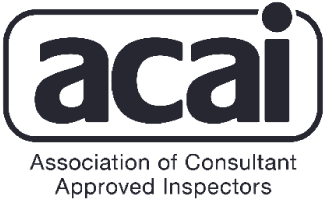In the realm of construction and property, ensuring structural integrity and compliance with building codes stands as a paramount concern. The role of a building inspector is crucial in maintaining safety standards and legal requirements. Recently, a new wave of registered building inspectors has emerged, bringing forth enhanced expertise and regulatory compliance to the construction landscape. Let’s delve into this pivotal role and the impact it’s making in the industry.
The Emergence of Registered Building Inspectors
In the past, building inspections were often carried out by professionals with varying levels of expertise and qualifications. However, the demand for standardised, thorough inspections has led to the introduction of registered building inspectors. These inspectors typically undergo stringent training, certification, and licensing processes, ensuring a high level of competence and adherence to industry standards.
Qualifications and Expertise
Registered building inspectors go through comprehensive training programs and possess relevant qualifications in construction, engineering, or related fields. They are well-versed in building codes, safety regulations, and construction practices. Additionally, they stay updated with the latest advancements in the industry, enabling them to assess structures with a critical eye for compliance and safety.
The Responsibilities
The primary responsibility of a registered building inspector revolves around conducting thorough examinations of structures at various stages of development. They inspect both residential and commercial properties, ensuring compliance with building codes, zoning regulations, and safety standards. Inspectors meticulously examine the structural integrity, electrical systems, plumbing, and overall safety features of a building.
Their assessments involve evaluating blueprints, conducting on-site inspections, and generating detailed reports outlining any violations or issues that need rectification. These reports serve as a critical guideline for builders, property owners, and developers to address and rectify concerns, ensuring the safety and legal compliance of the structure.
Advantages for the Industry and Community
The introduction of registered building inspectors has led to several advantages for the construction industry and the community at large. Here are a few notable benefits:
Enhanced Safety: Rigorous inspections by registered inspectors contribute to safer buildings, reducing the risk of structural failures and hazards.
Legal Compliance: By ensuring adherence to building codes and regulations, these inspectors help property developers and owners avoid legal complications and ensure a smooth approval process.
Quality Assurance: Thorough inspections guarantee high construction standards, resulting in better-quality buildings and increased customer satisfaction.
Professional Guidance: The expertise of registered inspectors offers valuable guidance to builders and developers, facilitating continuous improvement in construction practices.
To summarise, the advent of registered building inspectors marks a significant step forward in ensuring the safety, quality, and compliance of structures. Their expertise and thorough evaluations play a vital role in the construction industry, benefiting both developers and the community by guaranteeing safe and legally compliant buildings.
As this profession continues to evolve, it’s expected to further raise the bar for construction standards, making buildings safer and more resilient. The collective efforts of registered building inspectors contribute to the foundation of a more secure and regulated construction landscape, shaping a better future for the built environment.



